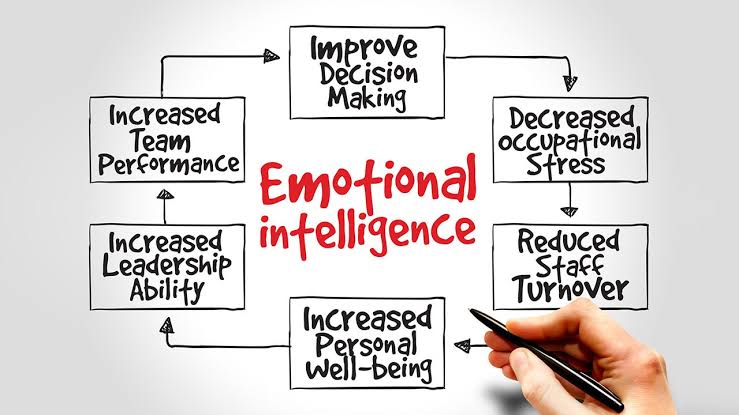Time is the most valuable currency for any entrepreneur. In a world where competition is fierce and innovation is relentless, how well you manage your hours directly influences the trajectory of your business. As of July 2025, entrepreneurship is more dynamic than ever, with new startups emerging daily, and the pressure to remain productive, adaptable, and focused is immense. Mastering time management is no longer a nice-to-have—it’s essential for survival and success.
Unlike traditional employees, entrepreneurs often juggle multiple roles—visionary, marketer, product developer, customer support, and financial strategist. Without a solid strategy to structure the day, even the most promising ideas can flounder under the weight of disorganization and burnout. Below are time-tested, practical strategies to help entrepreneurs manage time effectively, reduce overwhelm, and focus on what truly matters.
Start With Clear Priorities and Goals
Success begins with clarity. Without knowing what you’re working toward, it’s easy to waste time on tasks that feel urgent but aren’t truly important. The first step in effective time management is defining your short-term and long-term goals.
Break your major goals into smaller, actionable steps and assign realistic deadlines. Use weekly and daily planning to keep yourself accountable. Ask: What are the top 3 outcomes I need to achieve this week? This level of clarity allows you to align your schedule with your priorities and avoid distractions that don’t serve your mission.
Use Time-Blocking to Structure Your Day
Time-blocking is one of the most powerful techniques for entrepreneurs. Rather than working off an endless to-do list, this method involves dividing your day into chunks of time dedicated to specific tasks or categories of work.
For example:
- 8:00–9:00 AM: Email and communication
- 9:00–11:00 AM: Deep work (strategy, product design)
- 11:00–12:00 PM: Team meetings
- 1:00–2:00 PM: Business development
- 3:00–4:00 PM: Admin or client follow-ups
Time-blocking keeps you focused and prevents “task creep,” where low-priority tasks bleed into the time needed for strategic thinking or revenue-generating activities.
Eliminate Time Wasters and Digital Distractions
Social media, unplanned meetings, and endless scrolling are silent killers of productivity. Use tools like screen time trackers to monitor how much time you’re losing to distractions, and then set boundaries.
Some helpful tips:
- Turn off non-essential notifications
- Designate “no-phone” or “focus” hours
- Use browser extensions to block distracting websites
- Batch similar tasks (like checking emails or social media) to avoid constant switching
By consciously removing distractions, you create space for more meaningful work and deeper creativity.
Delegate and Automate Repetitive Tasks
One of the most common mistakes entrepreneurs make is trying to do everything themselves. To scale your business and your productivity, you must learn to delegate and automate.
Outsource tasks that do not require your personal involvement, such as:
- Bookkeeping
- Customer support
- Data entry
- Social media scheduling
Use automation tools like Zapier, Notion, Trello, or Monday.com to streamline operations. The goal is to spend more time on what only you can do—vision-setting, innovation, and strategic decision-making.
Set Boundaries Around Your Time
As an entrepreneur, it’s easy to fall into the trap of working around the clock. However, lack of boundaries leads to burnout, decision fatigue, and reduced creativity. Protect your mental energy by setting clear work hours—even if you work from home.
Establish boundaries around:
- Meetings: Avoid overbooking and create set days or time slots for calls
- Breaks: Schedule short breaks throughout the day to recharge
- Personal time: Prioritize family, health, and hobbies to maintain balance
Strong boundaries signal professionalism to others and sustainability to yourself.
Focus on One Thing at a Time
Multitasking may feel productive, but research continues to show that it decreases efficiency and increases errors. When you split your attention, each task receives less quality and more time than necessary.
Instead, practice single-tasking: give your full attention to one project or task until it’s complete or reaches a natural stopping point. Not only does this improve quality, but it also increases your satisfaction and reduces mental fatigue.
Review, Reflect, and Adjust Weekly
Time management is not a static skill—it requires regular reflection and adjustment. At the end of each week, take 30 minutes to review your accomplishments, analyze where your time went, and identify areas of improvement.
Ask yourself:
- What went well this week?
- What drained most of my time unnecessarily?
- How can I plan better for the upcoming week?
This practice sharpens your awareness and helps you avoid repeating mistakes. Over time, your ability to predict how long tasks take and schedule realistically will improve.
Leverage the 80/20 Rule (Pareto Principle)
The 80/20 Rule states that 80% of your results come from 20% of your efforts. In business, this means a small portion of your tasks likely drive the majority of your income or impact.
Identify the tasks, clients, or channels that yield the best results and prioritize those. Conversely, reduce or eliminate time spent on low-return activities. This rule is especially useful for solopreneurs who must be ruthless with their time and energy.
Start Your Day With a Morning Routine
A productive day begins with a productive morning. Establishing a consistent morning routine primes your mind for focus and calm. Many successful entrepreneurs use this time for meditation, exercise, journaling, or reading.
A strong morning routine helps you:
- Avoid chaotic starts
- Align your energy with your intentions
- Strengthen discipline and focus
Even 30 minutes of intentional activity before the workday can increase performance dramatically.
Final Thoughts
Entrepreneurial success depends as much on time management as it does on innovation and hard work. In fact, without managing your time effectively, even the best ideas can remain unfulfilled.
By planning with purpose, cutting out time-wasters, embracing systems, and setting strong boundaries, you gain more than just hours—you gain freedom, clarity, and momentum. Every minute well spent compounds over time and moves you closer to your goals.
Remember: It’s not about doing more; it’s about doing what matters most. When you master your time, you master your future.




Wonderful